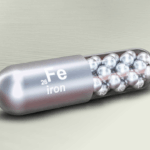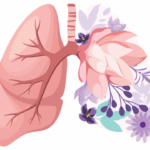
No matter what your weight loss goals are, it sometimes seems impossible to lose weight because of several physiological and psychological reasons. When most people think of weight loss, they rarely think of the brain as a critical element. It turns out, however, that the brain and its chemicals play a significant role in body composition and weight management.
Pursuing a weight loss goal requires behavioural changes to increase drive and motivation. Motivation is triggered and controlled by brain chemicals called neurotransmitters, which have essential roles in our body as they affect our physiological states, such as wakefulness, alertness, and calmness; regulate sleep, mood, motivation, memory, focus, energy, and libido; and control body weight. One neurotransmitter, dopamine, may present the most crucial brain chemical for weight loss. It is released at high levels during rewarding activities (e.g., accomplishments, exercise, food consumption/cravings, addictive substance consumption like sugar or drugs), and can be both stimulating (have excitatory effects) or calming (have inhibitory effects) to the brain. Factors such as stress, lack of sleep, or poor diet can deplete levels of neurotransmitters and often result in weight gain.
Studies have shown that losing as little as 5% of body weight can lead to significant metabolic health improvements, such as insulin sensitivity and blood lipids (e.g., cholesterol).
Also, hormones can affect body weight as they regulate neurotransmitter release from the brain. Hormones are chemical messengers circulating in the body and are involved in nearly every bodily process, including metabolism, hunger, and fullness. Because of their association with appetite and an unhealthy lifestyle, including diets rich in ultra-processed food, added sugar, and refined carbohydrates, they can lead to hormonal dysregulation (such as insulin resistance and increased leptin levels), and thus, an increase in weight. Insulin, leptin, and the ghrelin hormones (appetite-regulating hormones), can balance food intake and energy expenditure. Studies have found that the circulating levels of these hormones are associated with body fat content and are crucial for weight regulation.
For this reason, the secret behind effective long-term weight loss is to keep hormones in balance and gain control of how we handle our emotions. Emotional eating or eating when we’re not hungry is often associated with imbalances in hormones and neurotransmitters (e.g., a spike in cortisol or a lack of GABA for a calming effect), which can significantly sabotage weight loss efforts. When we experience negative emotions, such as being stressed out (cortisol high), feeling overly worried or anxious (GABA low), or facing a complex problem, we are more likely to turn to food for comfort instead of dealing with the painful situation. Sometimes the strongest food cravings hit when we are at our weakest point emotionally, leading to overeating – especially high-calorie, sweet, and fatty food.
The good news is, we can take steps to regain control of our emotional eating habits. This includes tracking food intake to reveal a connection between mood and food; managing stress through yoga, or deep breathing techniques to decrease cortisol levels; staying hydrated and getting enough electrolytes to prevent food cravings and snacking; getting emotional support through family, friends, or joining a group (e.g., weight loss groups online) to stay motivated and increase dopamine; getting distractions such as by taking a walk, listening to music, reading, or calling a friend to fight boredom and thus prevent snacking. Positive self-talk, giving yourself credit for changing your eating habits, recognizing progress, and creating a plan to avoid episodes of emotional eating in the future can increase dopamine levels and help you stay motivated and focused on your ultimate weight loss goal. Especially when weight loss seems slow or even stagnating, it is vital to acknowledge the progress and improvements made so far, such as in mobility, energy levels, and other aspects of health. Setting realistic goals at the beginning of your weight loss journey is just as important. Studies have shown that losing as little as 5% of body weight can lead to significant metabolic health improvements, such as insulin sensitivity and blood lipids (e.g., cholesterol).
Here are a few daily practices that may help you lose weight and keep it off. Research shows that making only a few small changes to daily habits can be an easy and effective way to increase weight loss:
- Starting the day with a high-protein breakfast can promote weight loss by reducing cravings, appetite, and ghrelin secretion throughout the day. Ghrelin, the so-called “hunger hormone,” plays an essential role in weight management as it can stimulate and increase appetite, and thus makes it harder to lose weight. Ghrelin is produced in the stomach and secreted when the stomach is empty. As it enters the bloodstream and travels to the brain, it tells the brain to become hungry and increase its food intake.
- RealEasy™ Meal Replacement with PGX® represents an ideal, healthy alternative source of food filled with optimal amounts of macro- and micronutrients, and is high in protein. Research-rich, patented PGX is a super fibre available in natural health stores. When taken with meals, PGX slows digestion to promote healthy blood sugar levels and curb cravings. Users report successful weight loss and improved health when taking PGX before meals.
- Increasing water intake can be beneficial for weight loss and energy expenditure. Start the morning with one or two glasses of water, and stay hydrated throughout the day.
- Spending more time outside can influence weight, as vitamin D obtained through sunlight may help increase weight loss and prevent weight gain.
- Physical activity first thing in the morning may be associated with increased satiety and improved blood sugar control, and can help boost weight loss.
- Meal planning and home-cooked wholefood meals are essential parts of weight management. Both are associated with a higher quality diet and a lower risk of obesity, increasing life expectancy.
- Tracking food intake by using a food diary (or online app) can be helpful for weight loss.
- Eating satisfying amounts of healthier food and snacking healthy is another weight loss strategy. Choose nutritious snacks, such as fresh fruit, vegetables with hummus dip, or nuts. Also, try low-calorie versions of your favourite foods.
- Avoid temptation by filling your home with healthy snacks instead of ultra-processed, high-sugar, and high-calorie treats. Buy a weekly treat outside of the home.
Instead of trying to achieve a specific weight goal, aim to be as healthy as possible. Being more intentional about what we put in our bodies so we can enjoy life more abundantly can help alter our way of thinking long term.
Besides following a balanced diet, getting enough sleep, staying active, and managing emotions such as stress (keeping cortisol levels low), another critical element is to change your mindset. For example, one study has highlighted the importance of viewing food and exercise as components of holistic health, which means we need to shift our focus. Instead of trying to achieve a specific weight goal, aim to be as healthy as possible. Being more intentional about what we put in our bodies so we can enjoy life more abundantly can help alter our way of thinking long term. Also, keeping hormones and neurotransmitters at healthy levels is essential to weight loss success. Certain supplements, such as the WomenSense® line, are formulated to support hormone and brain health, and can therefore provide valuable weight loss tools:
- HappySense® with 5-HTP naturally enhances serotonin (the happiness and peace hormone), which improves mood, reduces cravings, and increases energy. Healthy levels of serotonin help us deal with stressors, leaving a feeling of relaxation and calm. It may therefore prevent episodes of emotional or stress eating.
- AdrenaSense® is a natural formula containing rhodiola, suma, Siberian ginseng, schisandra, and ashwagandha. Ashwagandha regulates the adrenal glands and cortisol levels, leading to stress relief, and may thus help regulate weight loss.
- ThyroSense® is a proven natural combination of important nutrients, including L-tyrosine, ashwagandha, guggul, pantothenic acid, copper, manganese, and iodine, which can help enhance thyroid function. Regulating thyroid hormone levels is essential for weight loss. Several studies have suggested that thyroid hormone treatment can help produce more weight loss than can be achieved by dieting alone. L-tyrosine is an amino acid and essential component for the production of several important neurotransmitters, such as dopamine. It can speed up your metabolism and may thereby support weight loss.
- EstroSense® is a complete, natural formula that can help promote healthy estrogen metabolism. Both high and low levels of the sex hormone estrogen can affect weight.
In closing, be kind to yourself and stay the course. Every small daily step will take you closer to your health and wellness goals. The path to health, fitness, and wellness is a lifestyle, and it requires a marathon, not a sprint.














